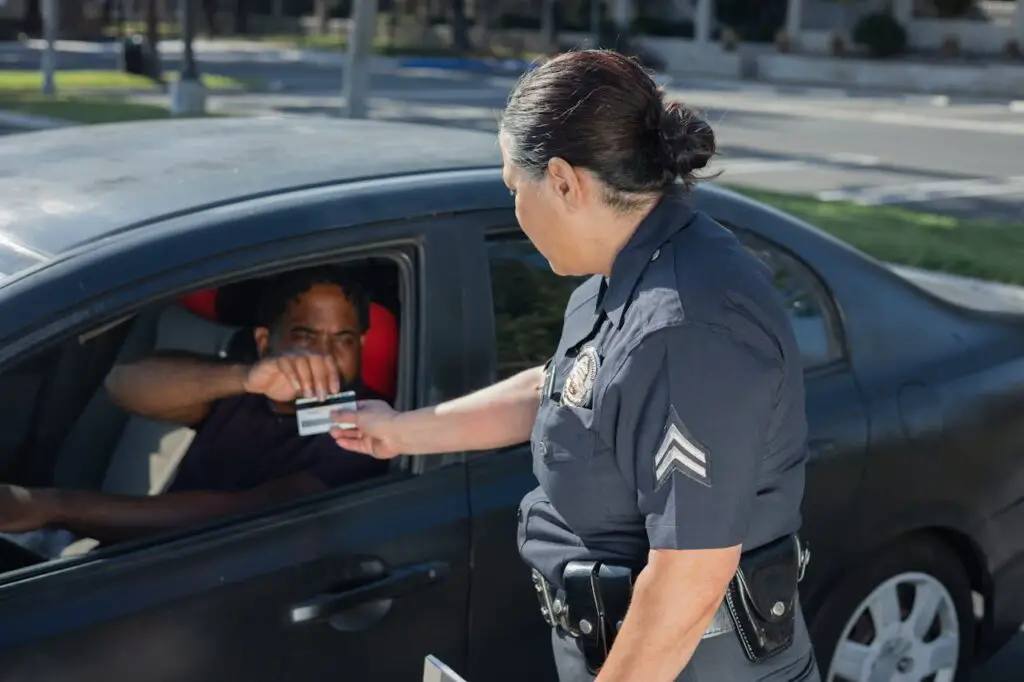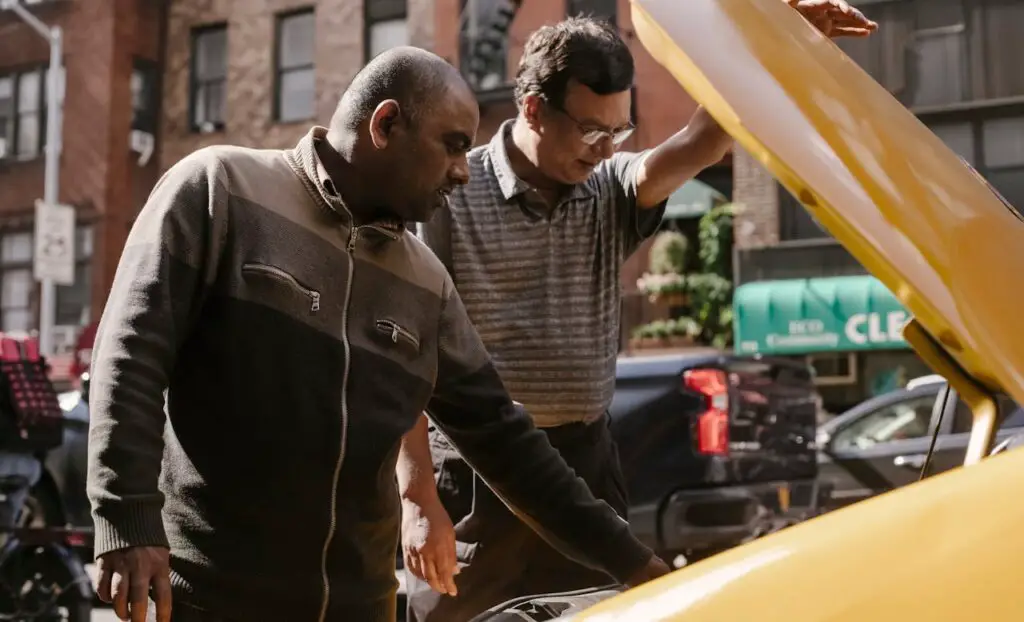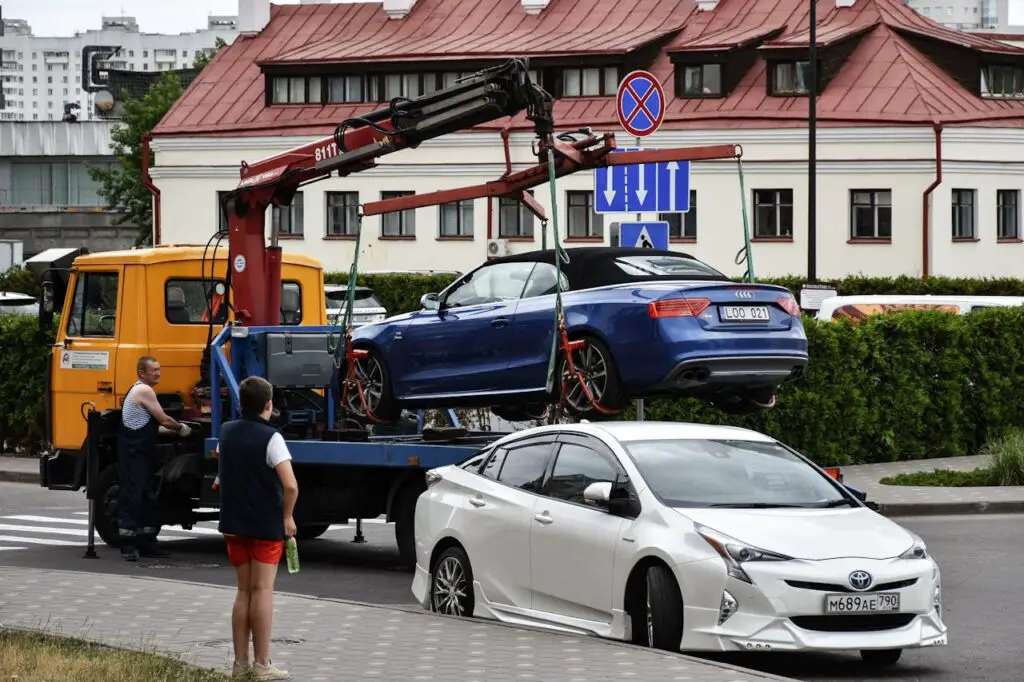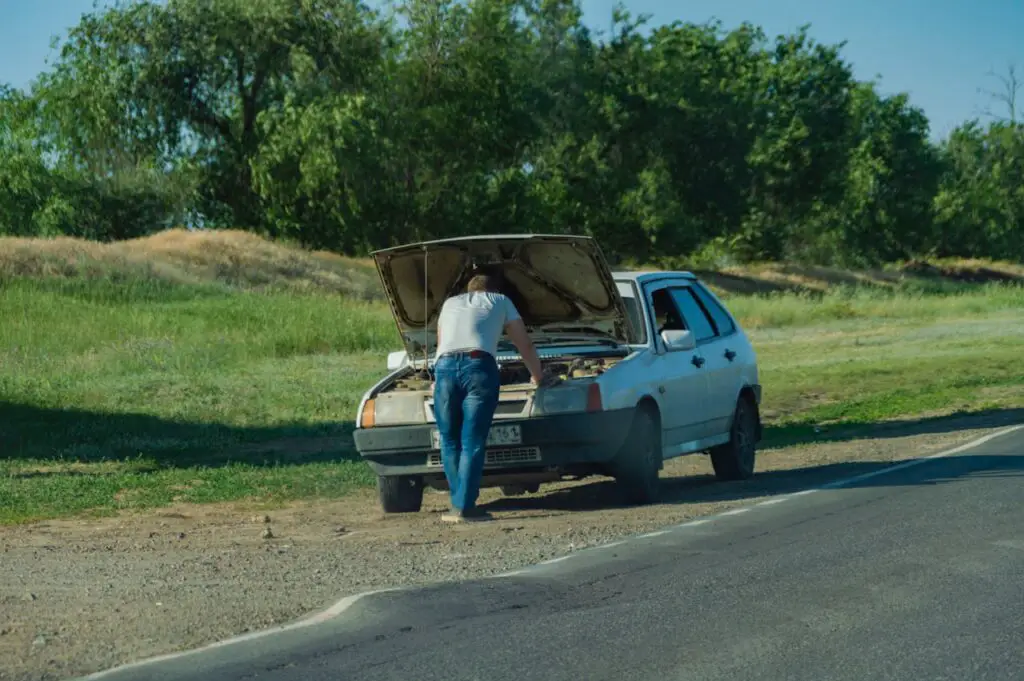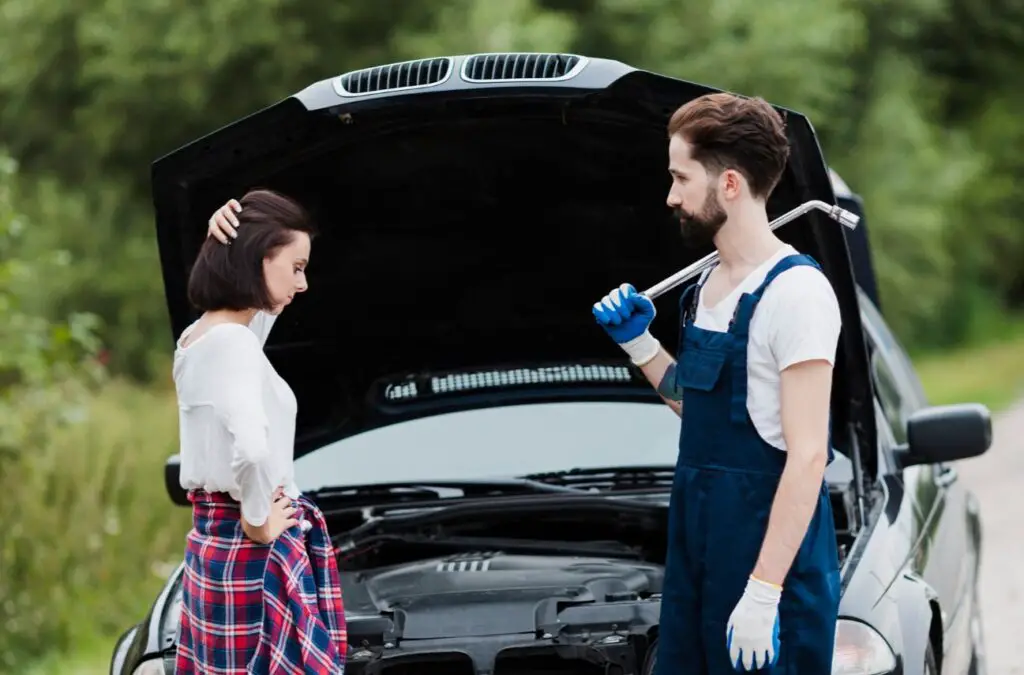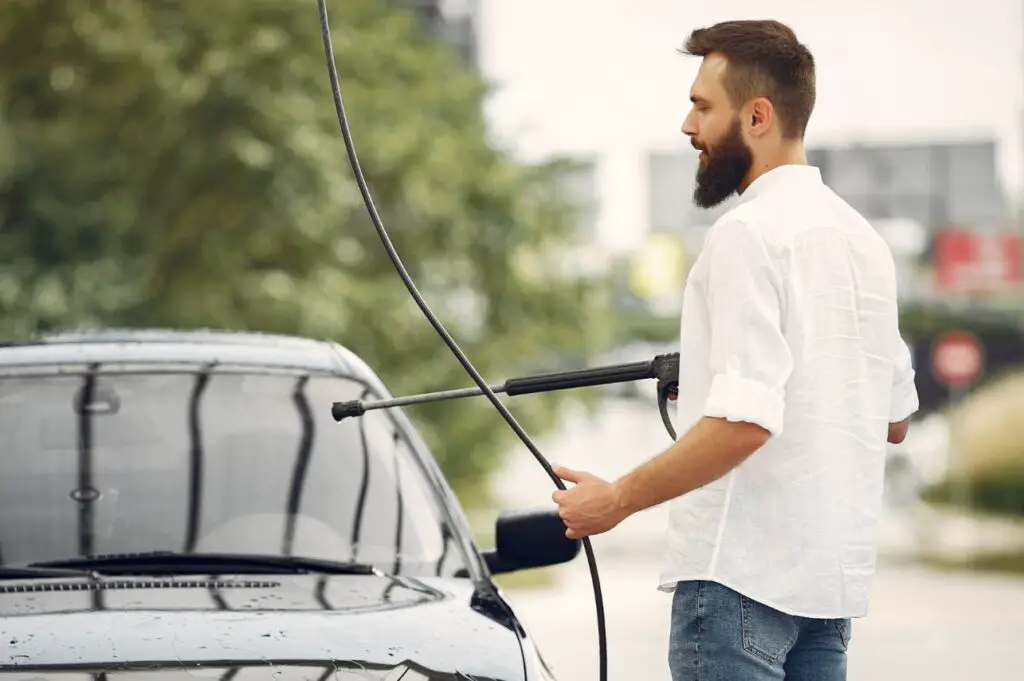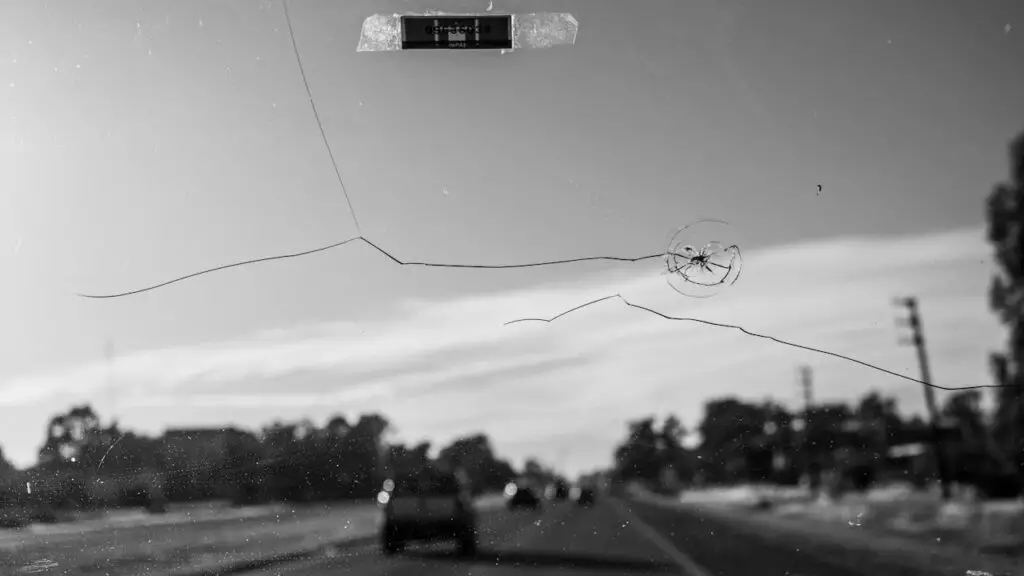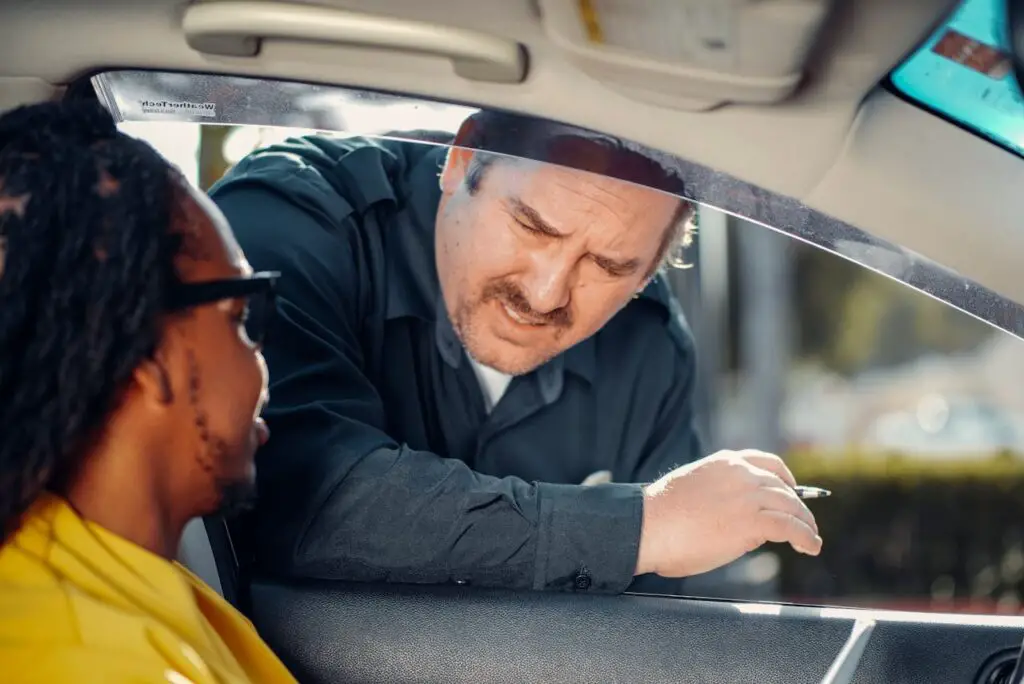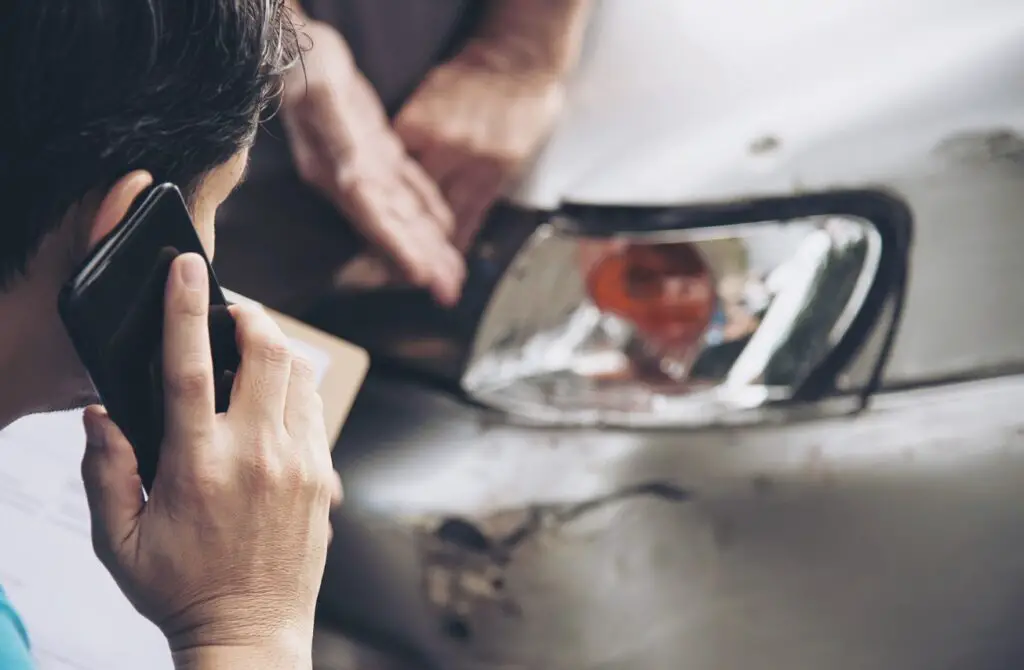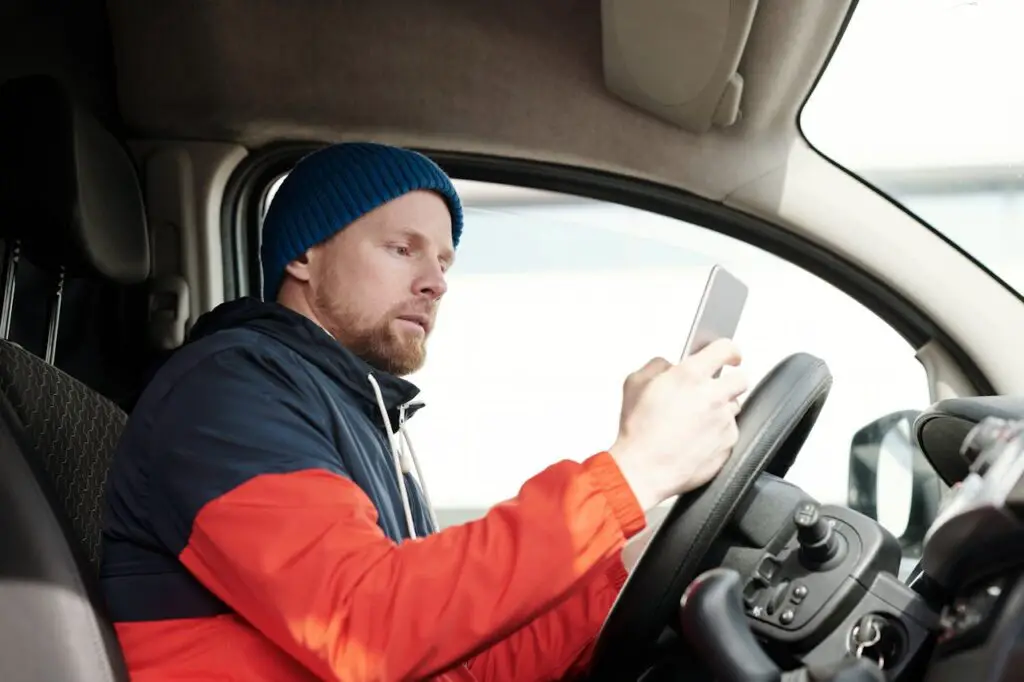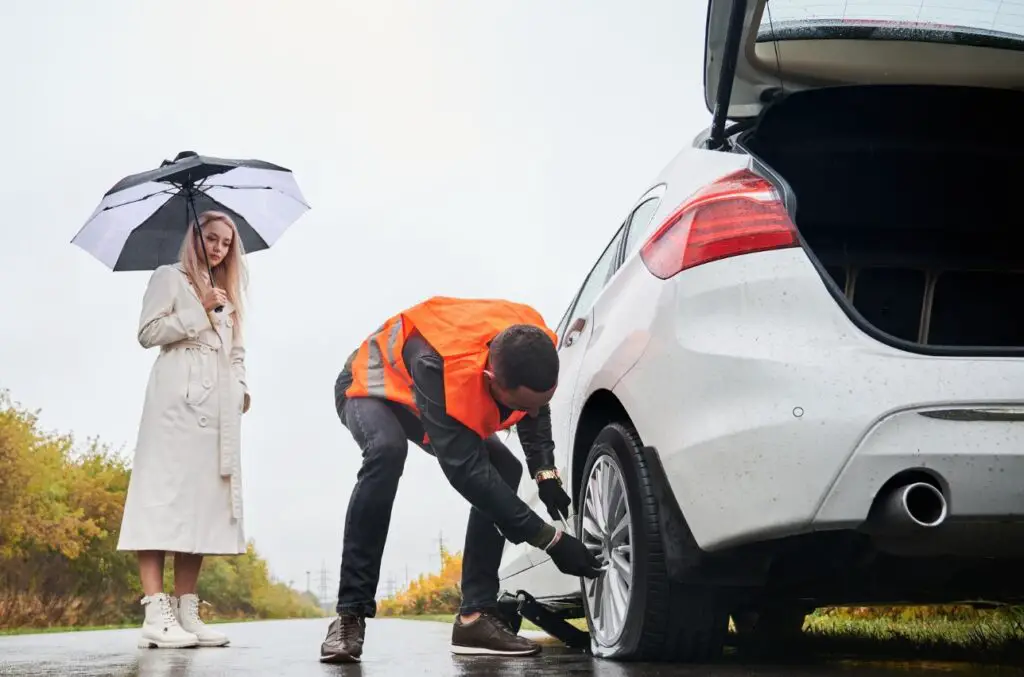When you’re driving, whether on a long road trip or just running errands, the last thing you expect is to fall victim to a scam. Unfortunately, roadside scams are more common than many people realize. Scammers often target drivers who are in vulnerable situations, like being stuck on the side of the road or dealing with a minor car issue. Understanding these scams and knowing how to handle them can help you avoid falling into their traps. Here are 13 common roadside scams every U.S. driver should be aware of.
1. Fake Car Accident Scams
Fake car accident scams involve scammers who deliberately stage an accident with your vehicle. They might swerve in front of you or brake suddenly, causing a minor collision. Afterward, they claim you were at fault and may demand money for damages. Some scammers even have an accomplice pretending to be a witness to back up their story. If you’re involved in a minor accident, remain calm, gather information, and don’t agree to settle the matter without contacting the police. Always document the situation and call the authorities to ensure everything is handled properly.
2. The “Help, I’m Out of Gas” Scam
This scam involves someone stopping to ask for help because they claim they’ve run out of gas. They might say they just need a few dollars to get to the nearest gas station. While some people genuinely need assistance, others are simply looking for an opportunity to take advantage of your kindness. If you encounter this situation, offer to call roadside assistance or direct them to the nearest station instead of giving them money. If you’re unsure, it’s better to walk away and avoid getting involved.
3. Flat Tire Scams
Scammers often target drivers with flat tires, especially if they notice you’re struggling to change it. They may offer to help, but their true goal is to distract you while they steal items from your car or cause additional damage. If you’re in need of assistance, it’s safer to call a trusted roadside service rather than accepting help from a stranger. Always keep your valuables hidden and locked in your car, and if you’re not comfortable with someone offering help, don’t hesitate to decline.
4. The “Good Samaritan” Scam
In this scam, a stranger will stop to offer help when your car breaks down or you’re in some other roadside situation. They might offer to jump-start your car or help with minor repairs. However, once they have access to your vehicle, they could steal personal items or cause damage. It’s always better to call a professional service or roadside assistance if you need help. If someone offers assistance, be cautious and keep an eye on your belongings. If you feel uncomfortable, it’s okay to politely decline their help.
5. The “Fake Tow Truck” Scam
Some scammers impersonate tow truck drivers, claiming that your car is illegally parked or needs to be towed for some reason. They may even provide a fake receipt for towing and demand payment upfront. Always verify the legitimacy of a tow truck by checking for proper identification and contacting your insurance company or local authorities. If you’re ever unsure, it’s safer to wait for official confirmation before paying any fees. Don’t hand over money to someone who can’t prove they are a legitimate tow truck driver.
6. The “Broken Down Car” Scam
Scammers sometimes position a car in a way that forces you to stop, claiming it’s broken down. Once you stop to offer help, they may ask for a tow or money for repairs. In some cases, they might even try to get you to tow their car to a location where they can rob you or demand more money. If you see a car on the side of the road and feel suspicious, it’s best to keep driving and contact a professional service. You can always report the situation to the authorities if you think something is off.
7. The “Shady Repairman” Scam
When you’re stuck on the side of the road, a repairman might approach and offer to fix your car. They’ll often charge inflated prices for minor repairs or may even cause further damage to your car to justify the cost. If you need repairs, it’s best to call a trusted mechanic or roadside assistance. Never agree to repairs from someone you don’t know, especially if they’re offering unsolicited help. Always ask for an estimate before agreeing to any work and don’t feel pressured to accept.
8. The “Fake Car Wash” Scam
Scammers sometimes set up fake car washes on the side of the road, offering a cheap cleaning for your vehicle. Once they begin washing your car, they may intentionally damage the paint or claim that additional services, like waxing, are needed. Afterward, they demand a much higher fee than what was initially agreed upon. It’s always best to avoid roadside car washes unless you’re sure the service is legitimate. Stick to well-known car washes in your area or ones that you’ve used before.
9. The “Broken Windshield” Scam
In this scam, someone might throw an object at your windshield, causing a small crack or chip. Then, they will flag you down and claim that you caused the damage. They may offer to repair it for a fee or insist that you pay for the damage. If your windshield is damaged, it’s better to call your insurance company or a trusted repair service rather than dealing with someone on the side of the road. Don’t agree to any repairs without verifying the legitimacy of the person offering them.
10. The “Fake Police Officer” Scam
Some scammers impersonate law enforcement officers and pull drivers over for supposed traffic violations. They may ask for your license and registration, claiming you owe a fine. In some cases, they may even steal your identity or charge you for a fake fine. If you’re pulled over and feel suspicious, it’s important to ask for identification and verify the officer’s credentials. If you’re still unsure, you can call the local police department to confirm that the stop is legitimate. Never hand over money or personal information without verifying the officer’s identity.
11. The “Broken Headlight” Scam
This scam occurs when someone flags you down to let you know that your headlight or taillight is broken. They may offer to help you fix it or demand payment for repairs. In many cases, the scammer has no intention of fixing anything and just wants to take your money. If you believe you have a broken light, it’s best to check it yourself or take your car to a trusted mechanic. Don’t agree to any roadside repairs unless you’re sure the person is legitimate.
12. The “Distracted Driver” Scam
In this scam, scammers use distractions to divert your attention while an accomplice steals from your car. They might drop something in front of your vehicle, pretend to argue with another driver, or create another distraction to get you to stop or look away. Always stay alert when driving, especially in busy areas. Keep your car locked and your valuables out of sight, and if something feels off, don’t hesitate to drive away and report the situation to the authorities.
13. The “Fake Roadside Assistance” Scam
Some scammers pose as roadside assistance providers, offering to help with a flat tire, dead battery, or other issues. They may ask for payment upfront, only to disappear once they have your money. Always verify the legitimacy of the service before agreeing to any repairs or paying for assistance. If you need help, call a trusted roadside assistance service or your insurance provider to ensure you’re getting the help you need.
Final Thoughts
Roadside scams are a real risk for drivers, but being aware of the common tactics scammers use can help you stay safe and avoid falling victim. Whether it’s a fake tow truck, a staged car accident, or someone offering help with a flat tire, it’s important to stay alert and cautious. Always verify the legitimacy of anyone offering assistance, and don’t hesitate to call a professional service if you’re unsure about the situation. By being informed and prepared, you can protect yourself and your vehicle from these common roadside scams. Stay safe on the road!

